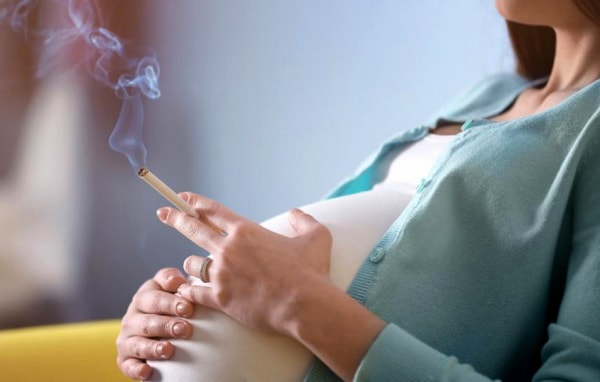Pregnant women are at great risk when exposed to cigarette smoke.
Pregnant or breastfeeding women should absolutely not smoke actively or passively.
Do not smoke when pregnant
The umbilical cord is the lifeblood of the fetus. The blood will then provide oxygen and food to nourish the baby. Every puff of cigarette that the mother takes will immediately have a negative effect on the baby: CO (carbon monoxide) will replace oxygen in the blood, leading to a decrease in the amount of oxygen that the fetus receives through the umbilical cord. The fetus cannot move normally for at least an hour after the mother is pregnant.smoke.

Smokeaffects the condition of the placenta and reduces the amount of nutrients supplied to the fetus through the placenta. Nicotine in cigarettes also reduces the amount of blood flowing through the umbilical cord, so it is difficult for the fetus to receive the oxygen and nutrients it needs. In addition, smoking also has a negative effect on the lungs and brain of the fetus. To prepare for breathing in the outside world, the fetus must exercise its chest muscles, but nicotine will reduce the baby's respiratory movements.
Do not smoke while breastfeeding
Breastfeeding is the best start for your baby. Breast milk provides all the nutrients your baby needs for the first six months and is an important part of your baby's diet for the first year. Breast milk also helps your baby develop immunity against many different diseases.
If you are breastfeeding, you must give up bad habits such as smoking and drinking alcohol. If you smoke, it is best not to breastfeed.
Mothers who smoke often have low milk supply. Babies whose mothers smoke often suffer from respiratory diseases that could be prevented by breastfeeding. Quitting smoking will help limit the amount of nicotine from cigarettes that enters the baby through breast milk and help protect the baby's health.
If quitting smoking is too difficult, mothers can still apply the following methods to help reduce the harmful effects of cigarettes on their babies: Before smoking, consider whether cigarettes are good for your body or not; try not to smoke before or during breastfeeding; try not to smoke near your baby - if possible, smoke outside. If you cannot quit smoking immediately, continue to make efforts gradually.
How does passive smoking affect the fetus?
Every time you, your spouse or other family members smoke near your baby, your baby will also inhale harmful substances from cigarette smoke into their body. This is secondhand smoke or passive smoking.
Although the smoke released into the air is diluted, it still carries many harmful substances. Children's lungs are often smaller and more fragile than adults', so they are more susceptible to the effects.
Babies and young children who inhale cigarette smoke are at increased risk of many dangerous diseases such as: SIDS (sudden infant death syndrome); respiratory diseases such as bronchitis, bronchiolitis and pneumonia; lung failure; cough, phlegm, wheezing and difficulty breathing; more frequent and severe asthma symptoms; otitis media causing hearing loss in children; meningitis often causing death, cerebral palsy, deafness and disability.
The more cigarette smoke a child inhales, the greater the risk of these diseases. The best way to protect your child is to stop smoking around him or her and to completely ban smoking in the home.
